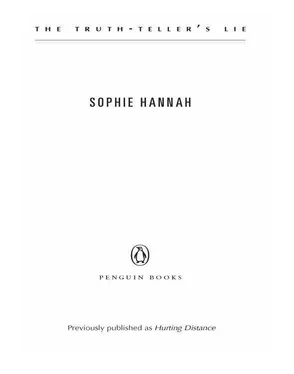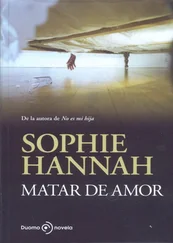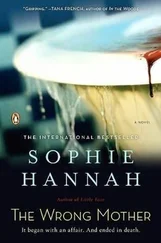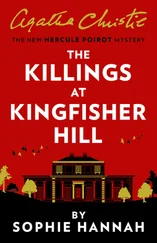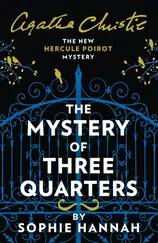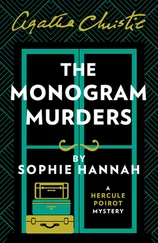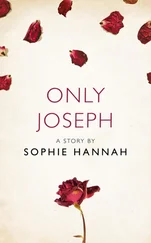I caught Bruce Doherty’s eye every now and then. It wasn’t long before he started to look uncomfortable. Giving up didn’t enter my head as a possibility. This was one small bit of justice I was determined to get. I’ll vandalise the place, I thought. I’ll walk round the room tipping people’s trays of food on to the floor. I’ll pick up my plate of hot poisonous slop and throw it in the manager’s face.
After I’d waited for nearly an hour and a half, I saw you walking towards me. My anger had thickened and risen inside me so that it blocked out every other thought and feeling. That’s why I didn’t notice at first how odd you looked as you approached. You were wearing your grey collarless shirt and jeans, smiling at me, balancing a wooden tray on one hand, like a waiter. I saw your smile first. I was starving, dizzy, sustained only by my vindictive fantasies. My insides felt cold and hollow, and there was a sharp metallic taste in my mouth.
You walked a perfect straight line towards me, with your free arm behind your back. I only noticed you properly once you were standing beside my table. I was aware that the tray in your hand wasn’t the same kind as the ones that were all over the food court—discarded on tables and in a tall pile in front of the counter where Doherty was still serving his lethal slop. Your tray was real wood, not wood-effect plastic.
On it was a knife and fork wrapped in a white cloth napkin, an empty glass and a bottle of white wine. Pinot Grigio: your favourite kind. This, like the coincidence of our meeting at the service station, sowed the seeds of a tradition. We have never shared a bottle of wine that wasn’t Pinot Grigio; we meet at the Traveltel—even though you say it’s not romantic enough, even though we could find somewhere much nicer for the same price—because Rawndesley East Services is where we first met. You have the mentality of an anxious collector, eager to preserve everything, to lose nothing we once had. Your love of tradition and ritual is one of the many things that has endeared you to me: the way you seize on anything pleasurable or good that happens by chance and try to make a custom out of it.
I tried to tell the police this—that a man who insists on drinking the same wine in the same room on the same day of every week would not suddenly break his own devout routine by disappearing without notice—but all they could do was look at me with stony indifference.
You picked up the tray Doherty had given me and placed it on the adjacent table. Then you put your tray down in front of me. Beside the napkin and cutlery was a china plate with a dome-shaped silver lid. You removed this without saying anything, smiling proudly. I was amazed, confused. As I told you later, I thought you were Doherty’s boss; somehow you’d heard about what had happened, perhaps from another member of staff, and you were here to make amends.
But you weren’t wearing the red-and-blue uniform or a name badge. And this was no ordinary amends. This was Magret de Canard aux Poires. You told me the name the next time we met. To me it looked like slices of tender duck breast—brown at the sides and pink in the middle—arranged in a neat circle around a peeled, cooked whole pear. It smelled as if it came from heaven. I was so ravenous I nearly burst into tears.
‘You’re supposed to drink red wine with duck,’ you told me matter-of-factly. Those were the first words I heard you speak. ‘But I thought white might be better, as it’s the middle of the day.’
‘Who are you?’ I asked, preparing to be angry, hoping I wouldn’t have to be, because I was desperate to eat the food you’d brought. Doherty was watching, as mystified as I was.
‘Robert Haworth. I heard you yelling at that tosser.’ You nodded in the direction of the hot-food counter. ‘He’s obviously never going to give you a lunch that’s edible, so I thought I would.’
‘Do I know you?’ I asked, still mystified.
‘You do now,’ you said. ‘I couldn’t let you starve, could I?’
‘Where did this meal come from?’ There had to be a catch, I thought. ‘Did you cook it yourself?’ What sort of man, I was wondering, hears a stranger wrangling over a bad meal in a service station and rushes home to cook her something better?
‘Not me. It’s from the Bay Tree.’ Spilling’s most expensive bistro. My parents took me there once and our meal, including wine, cost nearly four hundred pounds.
‘So . . .’ I stared at you and waited, making it clear that further explanation was required.
You shrugged. ‘I saw you were in trouble and I wanted to help. I rang the Bay Tree, explained the situation. Put in an order. Then I nipped down in my lorry and picked it up. I’m a lorry driver.’
I thought you must want something from me. I didn’t know what, but I was on my guard. I wasn’t prepared to eat a mouthful, even though my stomach hurt and my mouth was watering, until I’d worked out what your agenda was.
Doherty appeared beside us. There was a large fat stain on his shirt, roughly the shape of Portugal. ‘I’m afraid you can’t—’
‘Leave the lady in peace to eat her lunch,’ you said to him.
‘You’re not allowed to bring food—’
‘ You’re not allowed to sell food that’s inedible,’ you corrected him. Your tone was quiet and polite throughout, but I wasn’t fooled and neither was Bruce Doherty. We both knew you were going to do something. Astonished, I watched you pick up the plate with the chicken, chips and peas on it. You pulled open the neck of Doherty’s shirt and tipped the food into the space between his uniform and his chest. He made a disgusted noise, halfway between a wail and a groan, looking down at himself. Then he walked unevenly out of the food court, spilling peas from his clothes. Some rolled on the floor in his wake, some he crushed with the soles of his black shoes. I’ll never forget that sight as long as I live.
‘Sorry,’ you said once he’d gone. I had the impression that you’d lost some confidence. You spoke in a more stilted way, and seemed to hunch a little. ‘Look, I just wanted to help,’ you mumbled. You seemed embarrassed, as if you’d decided that bringing me a fancy duck dish from the nearest posh restaurant was a nerdy thing to do. ‘Too many people stand by and do nothing to help people in trouble,’ you said.
Those words changed everything.
‘I know,’ I said forcefully, thinking of the men in dinner suits who had applauded my rapist two years earlier. ‘I’m grateful for your help. And this—’ I pointed at the duck ‘—looks amazing.’
You smiled, reassured. ‘Tuck in, then,’ you said. ‘I hope you enjoy it.’ You turned to leave and I was surprised all over again. I’d assumed that at the very least, you’d stay and talk to me while I ate. But you’d said you were a lorry driver. You were bound to have an urgent delivery, a timetable. You couldn’t afford to waste your whole day hanging around a service station with me. You’d done more than enough for me already.
I knew in that instant that I couldn’t let you leave. This was the turning point in my life. I was going to make it the turning point. Instead of wasting all my energies reacting to the many bad things that happened to me, I would pursue one good thing.
You disappeared through the glass double doors at the front of the service station and soon you were no longer visible. That frightened me into action. I abandoned the food and ran outside as fast as I could. You were in the car park, about to get into your lorry. ‘Wait!’ I shouted, not caring how undignified I looked, sprinting wildly towards you.
‘Problem?’ You looked worried.
I was out of breath. ‘Aren’t you going to . . . have to take the tray and the plate back to the Bay Tree afterwards?’ I said. Pathetic, I know, but it seemed like a reasonable pretext at the time.
Читать дальше
